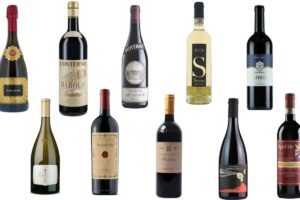“D-Day” is finally here: after more than two years (actually many more for the farmers’ “battle: transparency on the table”) and a faster “bipartisan” path, the Agriculture Committee of the House finally passed, by unanimous vote, the labeling bill that requires the indication of origin on food and which will have major repercussions on domestic European markets, provided that the European Union does not oppose it. Coldiretti, the Association of Italian Farmers – that today is celebrating in Rome in front of the palace of the Chamber of Deputies with a huge sausage made of 100 meters of Italian meat - estimates that not having a label law has cost 5 billion euros due to consumer psychosis triggered by food scares, like the scandal in Germany. The CIA, the Italian Confederation of Farmers, says “the Italian food sector will now recoup 13 million euros a day, protect consumers and farmers, counteract emergencies and have a strong defense against agropiracy and fraud that cause losses of about 2 billion euros a year in the agriculture sector. An economic value that was wrongfully removed is returning to Made in Italy and Italy will be the first country in Europe to have clear labeling for all products”. Confagricoltura, the Italian confederation of farmers stresses, “the executive decrees are important” and everyone agrees - even Fedagri, Copagri and Uila-Uil (federation of agriculture, confederation of agricultural producers and the Italian labor union/ agricultural labor union) - that, as the consumer protection federation, Federconsumatori says, “we will need to support this important measure wisely and intelligently so the European Commission cannot put up obstacles or slow it down”. Coldiretti stated that the mad cow disease led to making it obligatory to indicate the origin of beef on labels in 2002 and in 2005, because of the avian disease, the origin of chicken meat. However, it took more than 10 years to extend the law to all foods (the first case of mad cow disease dates back to January 13, 2001).
“This is”, says the President Sergio Marini, “an important measure for food safety with the proliferation of public health threats that spread rapidly throughout the world because of trading, like the case of melamine-tainted milk from China or sunflower oil from Ukraine”. The Coldiretti / Swg survey revealed 97% of Italians agree that the place of cultivation or breeding should always be indicated on the label. Moreover, Coldiretti continues, “it was confirmed that labeling was fundamental in the case of the dioxin emergency in Germany as an important tool in avoiding consumer psychosis. It had already proved effective in previous health scares like mad cow for beef and avian for chicken, as consumers started buying these foods again only after it became mandatory to indicate the origin on labels”. Eggs, chicken and fresh milk – notes Coldiretti - did not suffer a drop in purchases but purchases did drop, instead, where labeling was not mandatory: salami, mozzarella, pork and cheese. The “regulatory framework was full of contradictions on the mandatory indication of origin labeling for food”, explains Coldiretti, “it was mandatory for fresh but not for long-life milk, for beef and chicken but not for rabbit and pork, for fresh, but not for processed fruit or juices. About half of the products are still not covered even though Coldiretti had pressed to make it mandatory to indicate variety, quality and origin of fresh fruit. It has been mandatory from January 1, 2002 for beef because of the mad cow disease, from January 1, 2004 the identification code for eggs became obligatory and starting from August 1, 2004, the country of origin where honey was collected. From June 7, 2005 it is obligatory to indicate the place or milking stable for fresh milk, and since October 17, 2005 origin of chicken because of the avian influenza threat. Origin labeling for tomato sauce went into effect on January 1, 2008 and indication of origin for extra virgin olive oil from July 1, 2009.” “The indication of origin on food labels,” says the President of the CIA Giuseppe Politi, “is a significant step. It is a real guarantee. This bill is the first important response to the needs the Italian agricultural world has so often expounded. It is a giant step forward in ensuring that origin labeling becomes a reality for all food products. It allows identifying the origin and safeguards quality agriculture, which is already the case for some important products such as beef, poultry, fresh milk, eggs, fresh fruit and vegetables, honey, wine and olive oil”. Politi continues, “the problem now moves to Brussels. Here we must put up a powerful front to ensure that the EU fully implements legislation on the indication of origin, avoiding the risk of infringement and long controversy. And, I think that because of the response to outbreaks caused by the discovery of dioxin in food products in Germany, Europe will finally review its position on this delicate and complex matter”.
Stressing the need for the quick application of this measure, in particular the prompt enforcement of ministerial decrees, Politi reiterates that clear labeling “is a significant choice to combat all types of counterfeiting, to improve quality policy, to defend typical products and make the Made in Italy food industry more competitive”. “In order to fully understand the importance of the measure, just think of the damage that Italian food undergoes from the growing agropiracy assaults on international markets. Ham, olive oil, cheeses and wines, cold meats, fruits and vegetables are a series of “fakes” and “imitations” which have consequences not only for our PDO, PGI and TSG labels that represent the top of Made in Italy products in the world, but also for all the typical and quality products that are the formidable heritage of Italian agriculture. Agro-piracy of Made in Italy products,” Politi says, “is a worldwide business with revenues of almost 60 billion euros, a little less than half the turnover of our entire food sector. In the U.S. alone the turnover on imitations of Italian cheeses is well over 2 billion U.S. dollars. The situation is extremely serious. We are facing a huge supermarket of fakes, agro-incorrect indications, swindles and imitations. The new label law will certainly help combat a phenomenon that is reaching ever more alarming levels”. "And it is important now”, Confagricoltura said, “that the application of the ministerial decrees delegated to the methods and criteria for origin labeling, also defines the list of products subject to labeling. Then, adds the organization of farmers, “more clarity is needed on the possible effects of the measure concerning the “priority” of raw materials, which definition is also delegated to subsequent decrees. This may, under certain conditions, paradoxically increase consumer confusion rather than reduce it. Confagricoltura concludes, “The law will now be integrated with the legislation in the making in Brussels. Consumers should be aware that an “early warning system” to deal with emergencies like the dioxin issue in Germany has existed in Europe for years. It was introduced with the EU regulation 178/2002 and among the main innovations it introduced the requirement for food and feed traceability during all stages on the food chain “from farm to fork”. The measure allowed for, in case of an emergency, the withdrawal from the market of all the specific lots at risk. In short, food for sale is controlled and any faults can be immediately identified. The consumer is guaranteed and though they cannot see the safety net with their own eyes, they know it is there”.
Focus – Origin label foods on Italian tables. These are the foods with “identity cards”:
Chicken meat and derivatives, beef and dairy products, fresh fruit and vegetables, eggs, honey, tomato sauce, fresh milk, fish, extra virgin olive oil
And the foods without:
Pasta, pork, cold cut meats, goat meat, rabbit, sheep and lamb, processed fruits and vegetables, tomato derivatives other than sauce, long-life milk, derivatives of grains (bread, pasta), cheese
The specification for PDO (Protected Designation of Origin) products requires raw material to be Italian, while for some IGP (Protected Geographical Indication) products the primary agricultural source of production is not Italian.
Source: COLDIRETTI, Association of Italian Farmers and CIA, Confederation of Italian Farmers
Focus - CIA: what Italians want on their tables.
Nine out of ten want the indication of origin. 83% prefer products made in Italy (considered safest) and 85% say “no” to GMOs
More than nine out of ten Italians (95%) call for a more “transparent” label, where the origin is indicated. 83% choose Italian food first, especially if it is typical and traditional; 75% want easy-to-read retail price tags, while 84% want fewer steps from farm to table so prices will be lower. 85% expressed clear opposition to GMOs and 65% believe that organic is safer. These are some of the results of a survey on new guidelines for food consumption in Italy conducted by the Italian Farmers Confederation, Cia, and revealed today upon approval of the new labeling law. Food scandals, like the dioxins in Germany, have made Italians more aware, says the CIA, of labels with particular regard to the origin of the product. Labels must be absolutely transparent. The vast majority of Italians (75%) is favorable to indication of origin on labels and read the ingredients and the composition of processed products. 65% check the expiration date. However, Made in Italy products are the most sought after by Italians. The reasons for this choice, says the CIA, are the long-established habits and customs of Italian families and the knowledge that local products, in addition to responding to the characteristics of typical, traditional ties with the territory, are safer than imported ones. This conviction has become even stronger in recent years in response to adulteration, falsification and fraud relating to foreign products. Another reason that pushes Italians to buy Made in Italy is that our products are cheaper than others. This is found mainly in rural areas and the countryside and less in large cities, where, however, there is a growing tendency towards purchasing Italian products. Italians also prefer (75% of the total) DOP, PGI and TSG (Traditional Specialty Guaranteed) labeled products, which are considered high quality and safe, even though in many cases, they are too expensive for their pockets. On the other hand, these products, notes the CIA, are considered a formidable heritage, maintaining the leading position in the European rankings, followed by France and Spain. A focus on quality and typical products is also detected in the selection of wines: 65% prefer denomination of origin. Six out of ten Italians prefer to drink less and spend a little more for a product that has certain characteristics. This preference drops quite a bit (55%) for those who put bulk wine on the table. Italians have been consuming more and more “organic” products in recent years. A choice, says the CIA, which for 58% of the total of “bio-lovers” (63%) is motivated by both food safety and product quality. A very high percentage of Italians (85%) is clearly contrary to “biotech” food (“transparency” in this sense is provided by the new labeling law) that is believed dangerous to your health by 56%, while 78% of the “anti-GMO” believes they are less healthy than traditional products. 82% said they have never purchased gm products. Italians also blame, concludes the CIA, the long and complex food chain for price increases. More than eight out of ten Italians are for a drastic reduction of the steps, which would keep costs lower and stop speculation.
Copyright © 2000/2026
Contatti: info@winenews.it
Seguici anche su Twitter: @WineNewsIt
Seguici anche su Facebook: @winenewsit
Questo articolo è tratto dall'archivio di WineNews - Tutti i diritti riservati - Copyright © 2000/2026























































































































































































